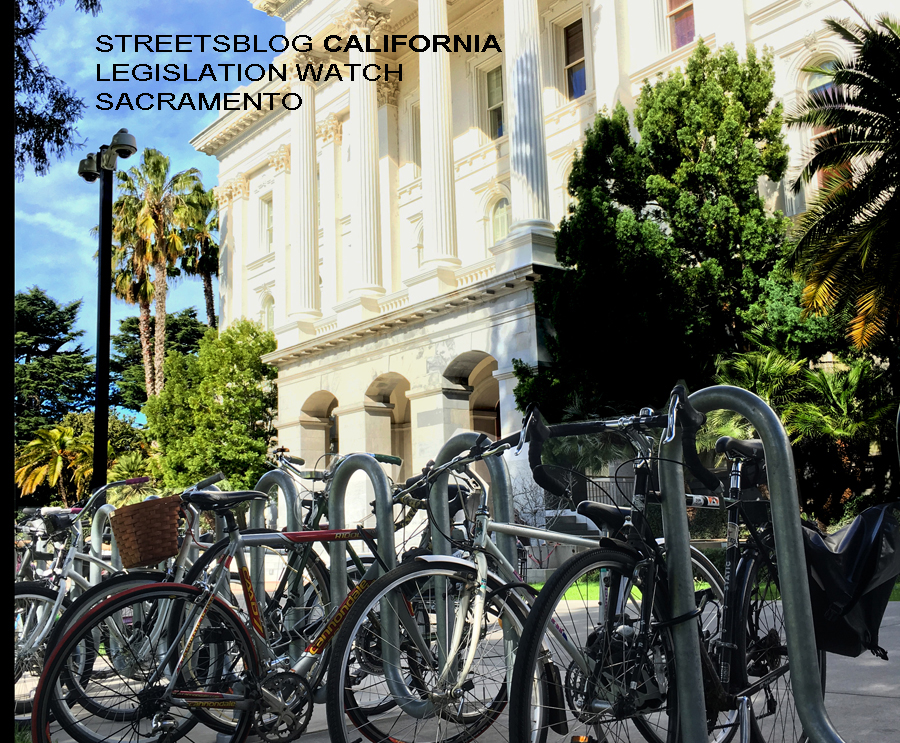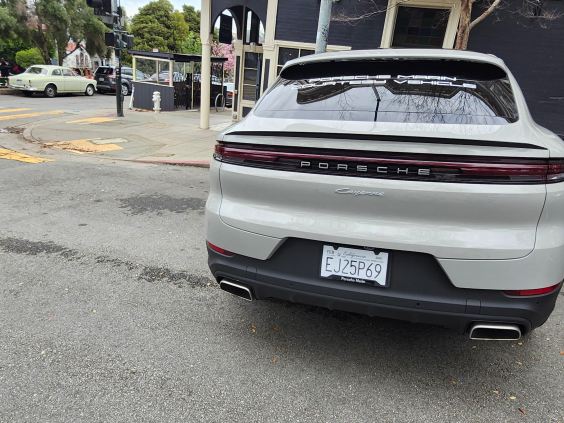Note: GJEL Accident Attorneys regularly sponsors coverage on Streetsblog San Francisco and Streetsblog California. Unless noted in the story, GJEL Accident Attorneys is not consulted for the content or editorial direction of the sponsored content.
Assemblymember Cristina Garcia's A.B. 1778 would do what advocates, academics, the state Air Resources Board, and state and even federal transportation agencies have been saying needs to be done: get the state to stop building new and expanding existing highways.
There are myriad reasons to stop, including that it has been shown that building more lanes for cars doesn't even fix the problem it purports to solve - congestion. Building more roads inevitably and inexorably leads to more, not less, traffic and congestion. Equally urgent are climate and air quality issues that arise from more driving. Garcia, in introducing the bill, also points to the additional harm from displacing people when homes and businesses are removed to make way for more cars.
For years Streetsblog has been writing about the problems caused by freeway widening, and recently the L.A. Times published an investigation about how many people lost homes to freeway building nationwide. The analysis was hampered by a lack of data, because displacement is generally seen as a minor price to pay for progress - with progress meaning "getting more cars moving faster" rather than "housing people with dignity" or "making communities more livable."
Notably the L.A. Times investigation looks at only the last three decades, which leaves out the even more rampant freeway building that preceded what is generally recognized as a "freeway revolt" in the 1970s. At that time, communities - in San Francisco, in Portland, and in other places - started pushing back against the freeway builders, and succeeded in stopping some freeways that would have cut right through their cities.
That didn't stop the freeway building, though. Now - and all along - most of the displacement is happening in communities that are less organized and less well-off - and more likely to already suffer from bad air quality and unsafe walking conditions. In California, the families that have lost their homes over the last thirty years have also been disproportionately residents of Black and Latino neighborhoods.
“If we are truly going to govern with equity lenses, we must stop the seizure of family homes in poor brown and Black communities and acknowledge that the freeway system since the 1950s has been used as a tool to further disenfranchise low-income communities and communities of color like mine,” said Assemblymember Garcia in a statement.
But stopping freeway expansion is only a "starting point," according to Garcia.
“It is imperative that the resources - money and time - consumed by the discussion of freeway widening are reallocated to completing public transportation projects," she said. "This creates jobs and helps make communities healthier while keeping people in their homes."
"It is outrageous and feels criminal to use state resources to choke and displace communities like mine when the data and research clearly show that this practice is just another example of the systemic racism in our policies and practices. Emission increases from freeway expansion raises the risk of health hazards for underserved communities along the corridor. I can no longer allow state dollars to fund expansion projects that kill all of us faster.”
Streetsblog previously wrote about the planned Caltrans and L.A. Metro highway expansion projects that would displace thousands of households in Garcia's district. They include widening the 710 Freeway from Long Beach, the 5 freeway through Downey, the 605 in southeast L.A. County, and other smaller widening projects that are excused as "necessary gap fillers."
Garcia points out that a much more equitable and environmentally friendly use of state transportation money is to support and improve public transit, such as the West Santa Ana Branch transit rail project which largely parallels the 710 Freeway.
A.B. 1778 is a shot in an ongoing battle over aligning California's transportation funding with climate and environmental justice. CalSTA, Caltrans, and the California Transportation Commission have all claimed to be working towards better transportation solutions than just building freeways, and out the other side of their mouths they argue that they must complete what they started; that the "pipeline of projects" is too full and too slow-moving to just choke off; that they can't just stop.
Maybe what they need is a law that gives them the backbone to do what they already know is the right thing.
Streetsblog will be keeping an eye on this bill.






